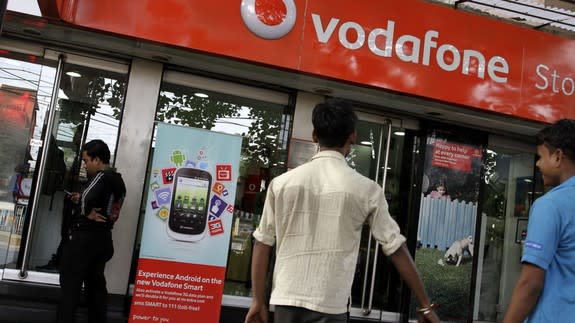Vodafone's latest innovation converts digital money into hard cash

If you are tired of queuing up at ATMs and are despairing because you are unable to access your own hard-earned money, here’s some good news for you.
SEE ALSO: India's futile attempt to go cashless is a reality check for our dream epayments future
Cellular service provider Vodafone is now allowing M-Pesa users to encash their digital wallet balance into physical cash at about 130,000 touch points across India. M-Pesa is Vodafone’s mobile wallet service that has 8.4 million active customers.
M-Pesa Pay, built on top of the existing app, has an ‘agent locator’ feature that helps you find your nearest M-Pesa agent who can offer you cash in exchange of digital money. The withdrawal limit is in line with that of banks — Rs 2,000 ($30) per user per day.
This move by Vodafone brings about an interesting differentiation for M-Pesa that competes in an increasingly dynamic mobile wallet landscape in India, following the Indian government’s ban on high-value currency notes early November.
It is also slightly contrary to what the Government of India has been actively proposing: a cashless society. In the wake of demonetization, Vodafone’s competitors Airtel (which operates Airtel Money and launched the country’s first payments bank last month) and Reliance Jio (which runs Jio Money) have been ramping up their cashless services. But Vodafone is wisely pushing M-Pesa adoption by making it available to non-Vodafone customers too.
The mobile wallet industry, too, has witnessed unprecedented growth in the last one month.
Market leader Paytm claims that transactions on its platform have surpassed overall monthly debit and credit card transactions in the country. Ola Money, a wallet owned by Uber's rival cab-hailing service Ola, has grown its recharges by 1,500 percent, according to the company. Freecharge, owned by ecommerce firm Snapdeal, now allows ‘Wallet on Delivery’ option for customers who would earlier adopt for ‘Cash on Delivery’ to pay for their online purchases.
Essentially, M-Pesa’s competitors are focused on pushing the government’s no-cash formula, but Vodafone appears content in helping customers skip ATM queues. Multiple deaths have been reported as a result of people queuing up for long hours outside banks and ATMs and flock to its agents instead. “92% of all retail transactions in India happen in cash,” says Sunil Sood, MD & CEO, Vodafone India. “In rural India, people have to walk long distances of 15-50 km to find a bank branch.”

 Yahoo News
Yahoo News 